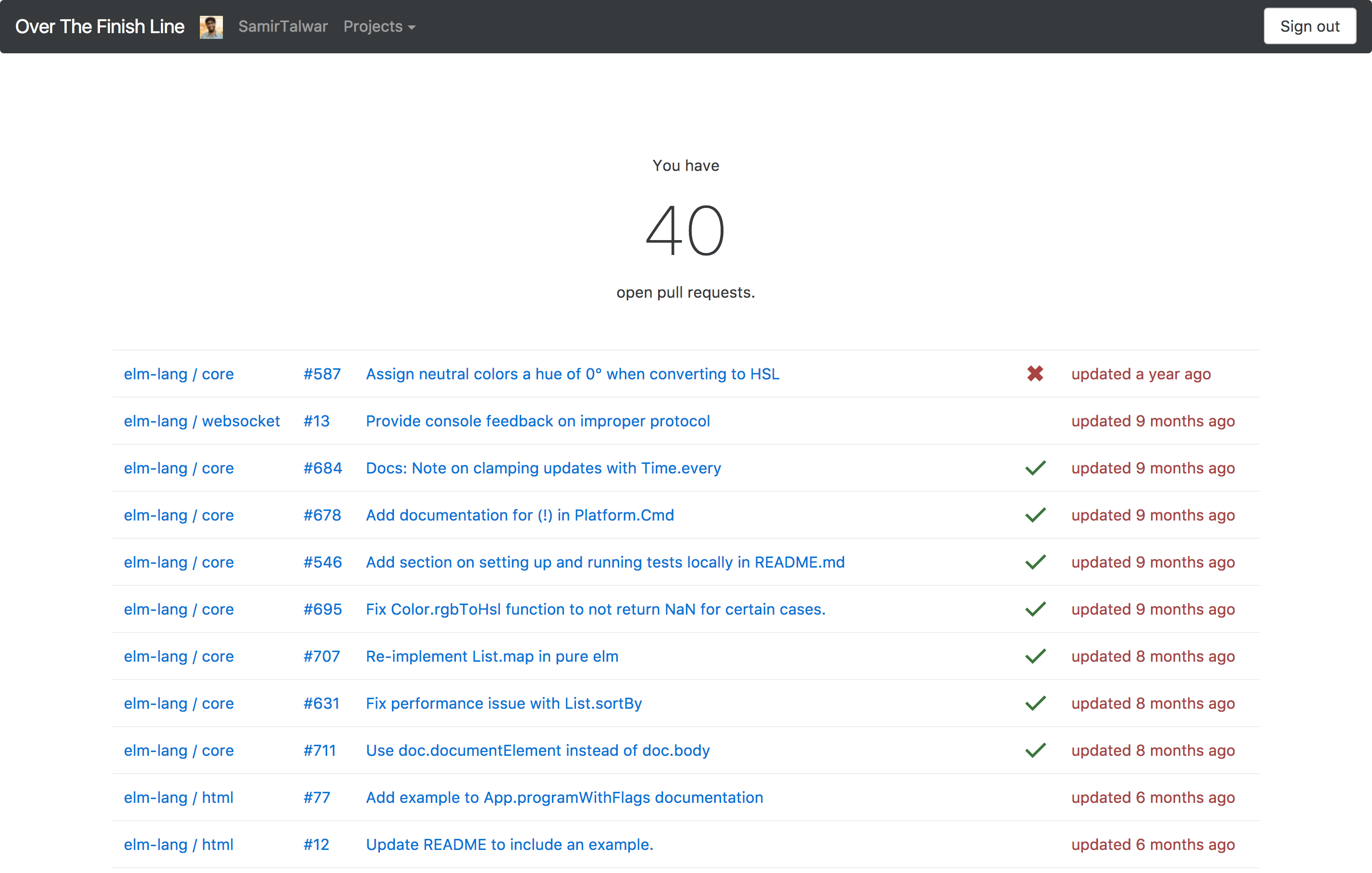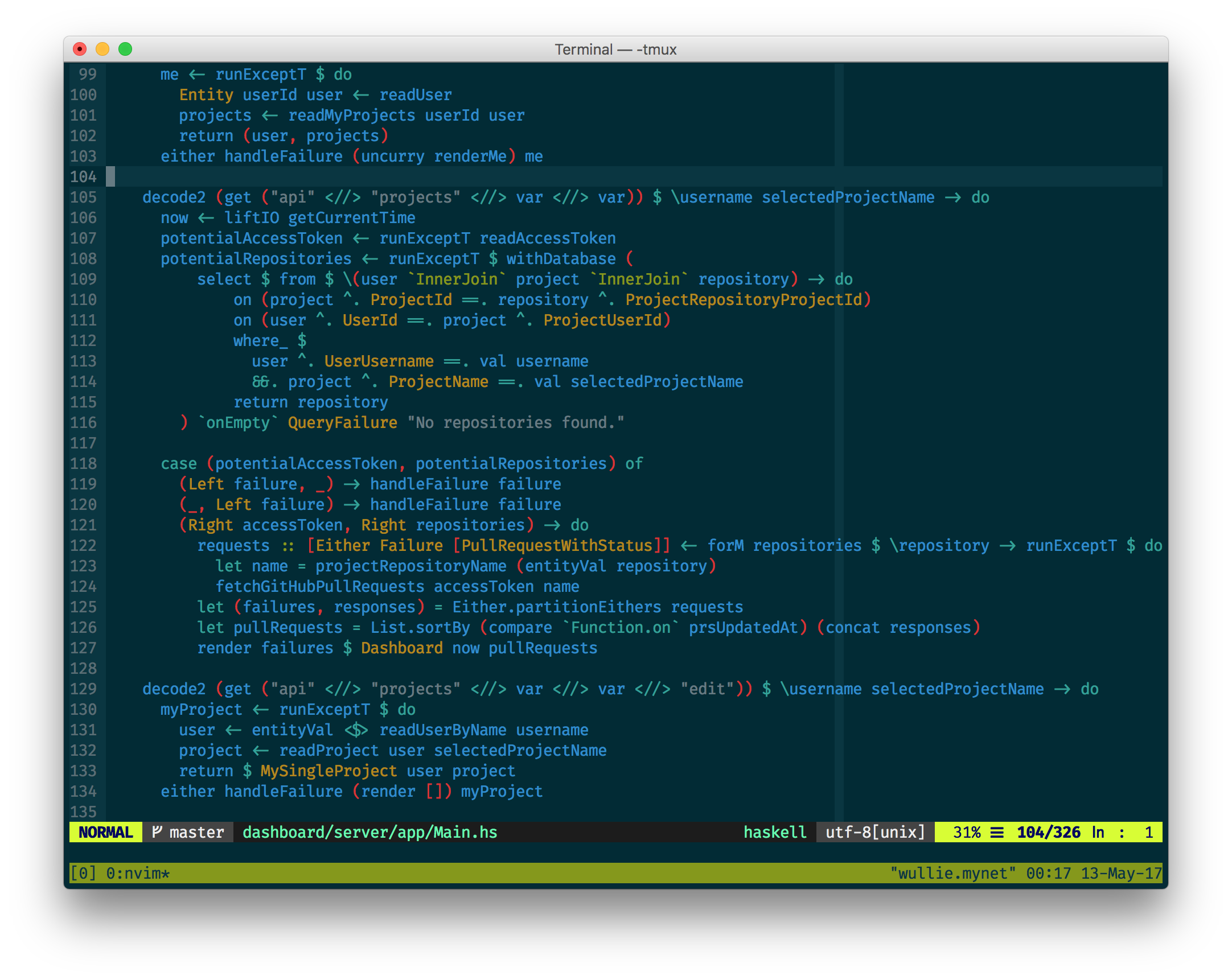More like Hask-Hell LOL
by Samir Talwar
Wednesday, 31 May 2017 at 08:30 BST
I’m not sure how, but a little while ago I got talking to John Cinnamond about an experience of mine with Haskell that didn’t exactly end well.
As some of you may know, I made a terribly-promoted, mostly-unused (except by me) application called Over The Finish Line. It displays open pull requests on your favourite repositories in a dashboard format. I think it’s pretty neat. It doesn’t get much love nowadays… but I’m getting ahead of myself.

Being a statically-typed functional programming purist, and this being the middle of 2016, I went for the new shiny client-side compile-to-JavaScript programming language: Elm. Elm checked all the boxes: it’s type-safe, uses spaces to provide function arguments, is pure FP and generally shits rainbows. Basically, it looked like Haskell.
And, of course, I picked Haskell as the server-side language, because of course. I’d never used it for a web application before, but I figured I could handle it. I grok monads. I eat higher-kinded types for breakfast. (They’re great with yoghurt and blueberries.)

And so, I booked a week off and dove in.
Initially, the two languages felt quite similar, but they quickly started to diverge. Elm was annoyingly simple; no higher-kinded fmap or >>=; I had to think about what kind of data structure I was working with. Which was easy, because the error messages told me. Eventually, I realised that these two things were one and the same. The lack of fancy Haskell-like types and fmap and whatnot meant that Elm could reason about my program exceptionally well, and I learnt to just follow the compiler.
No such luck with Haskell.
At first, the server side was a breeze. I loved it. It was all the monads, all the time, and isn’t that what Haskell folk live for? And it lasted all of two days before I hit a wall. It was monads upon monads, and it went from the type system really helping to hurting. Sure, I didn’t have to manually remember types of values, but I did have to manually remember what the stack of monad transformers looks like.
What’s a monad transformer? I already told you. Literally monads upon monads. Turns out one is easy, two is fine, and three is impossible. I’m sure smarter people than me can handle them fine. I wept.

I wouldn’t use Haskell for this project. But I would absolutely use it again, just not for anything where there’s more than one layer of I/O. And I’d only use it if there was serious computation going on. Most of this project is side effects: talking to GitHub, talking to the database, loading the configuration from environment variables, serving over HTTP.
I don’t think I’ve ever said this before, but I wish I’d just used node.js.
Now I’m exploring an idea which I think will help: what if we could compose processes like we do services? So I started working on Eleven with Mateu Adsuara and others. Tell me what you think.
I really miss working with Haskell. But not like this.
If you enjoyed this post, you can subscribe to this blog using Atom.
Maybe you have something to say. You can email me or toot at me. I love feedback. I also love gigantic compliments, so please send those too.
Please feel free to share this on any and all good social networks.
This article is licensed under the Creative Commons Attribution 4.0 International Public License (CC-BY-4.0).